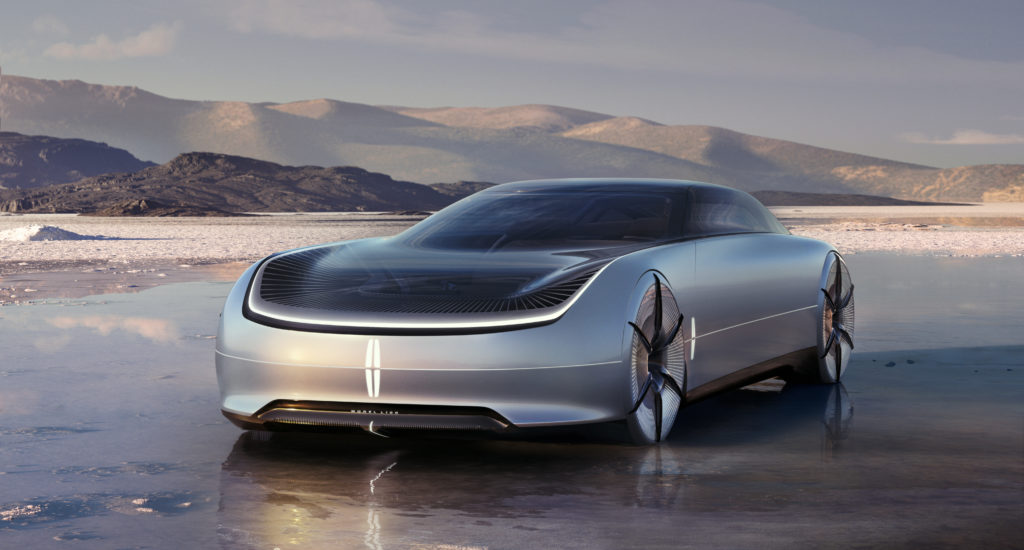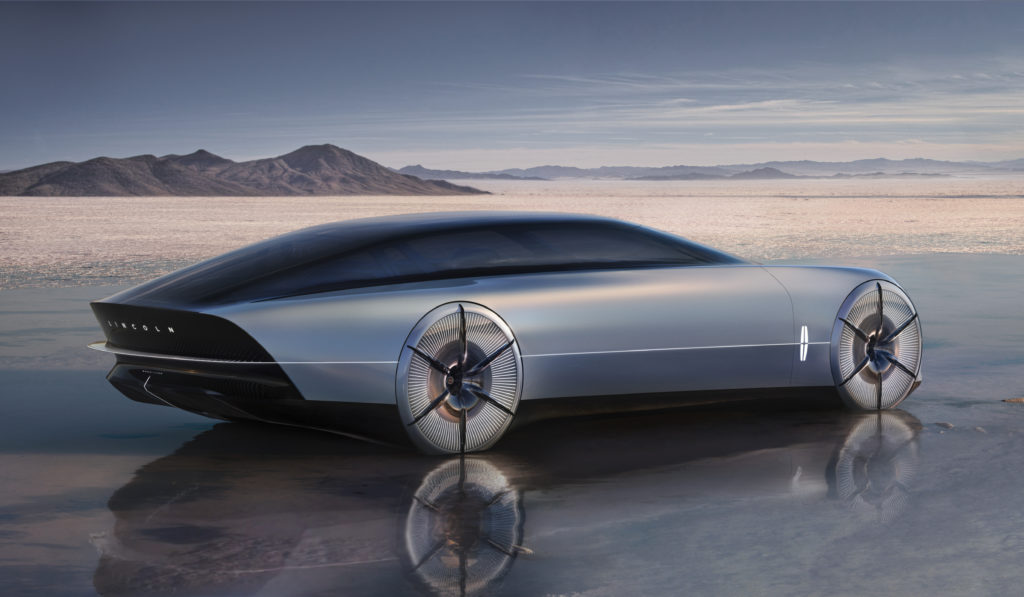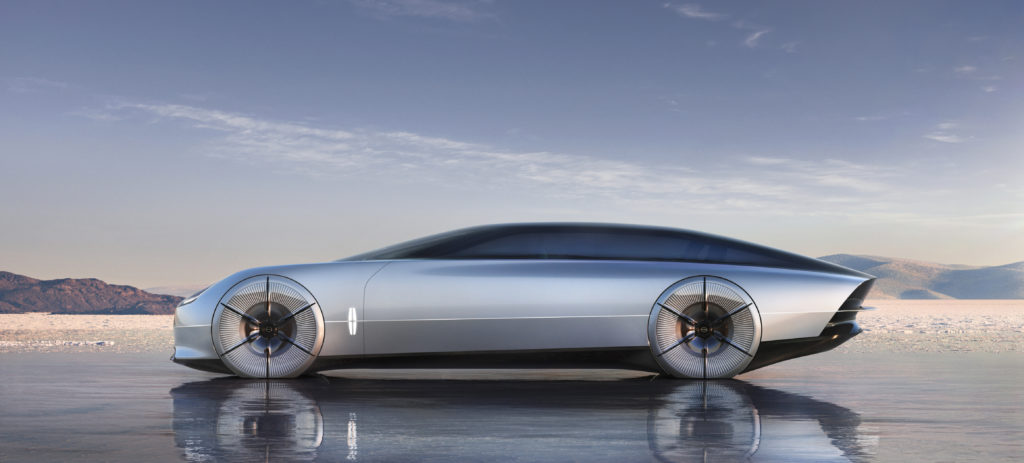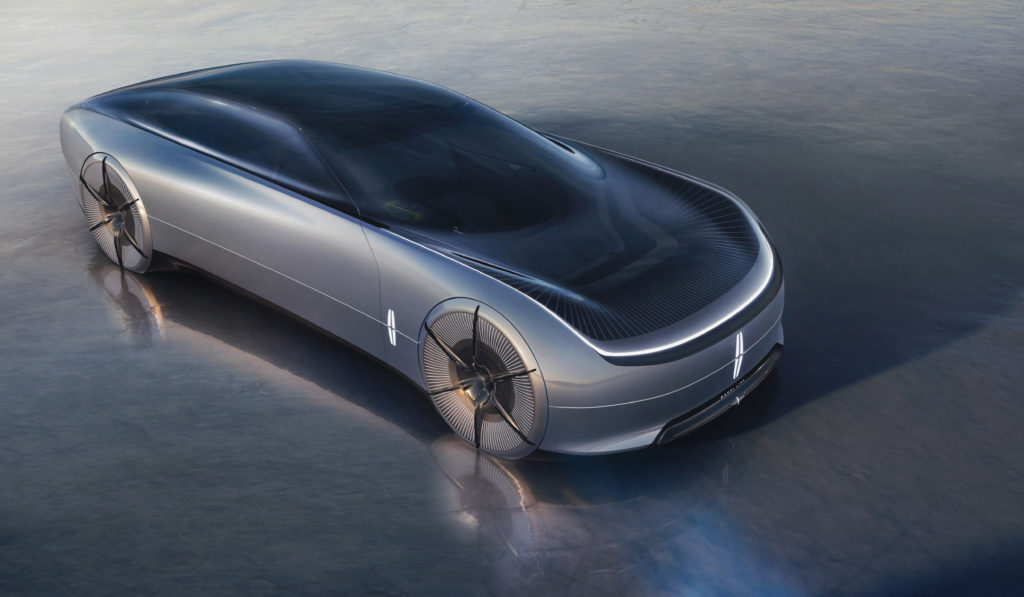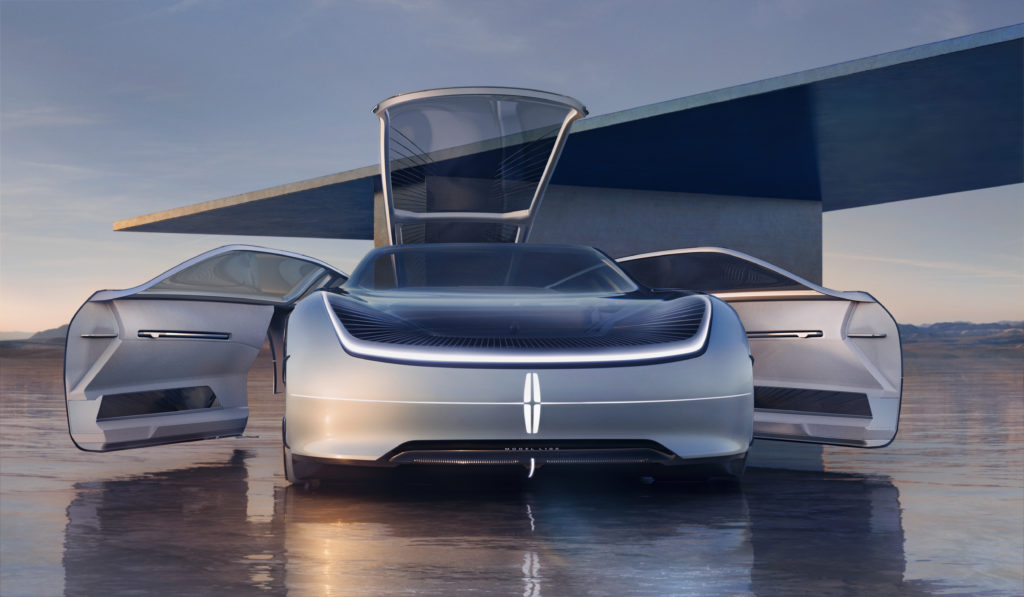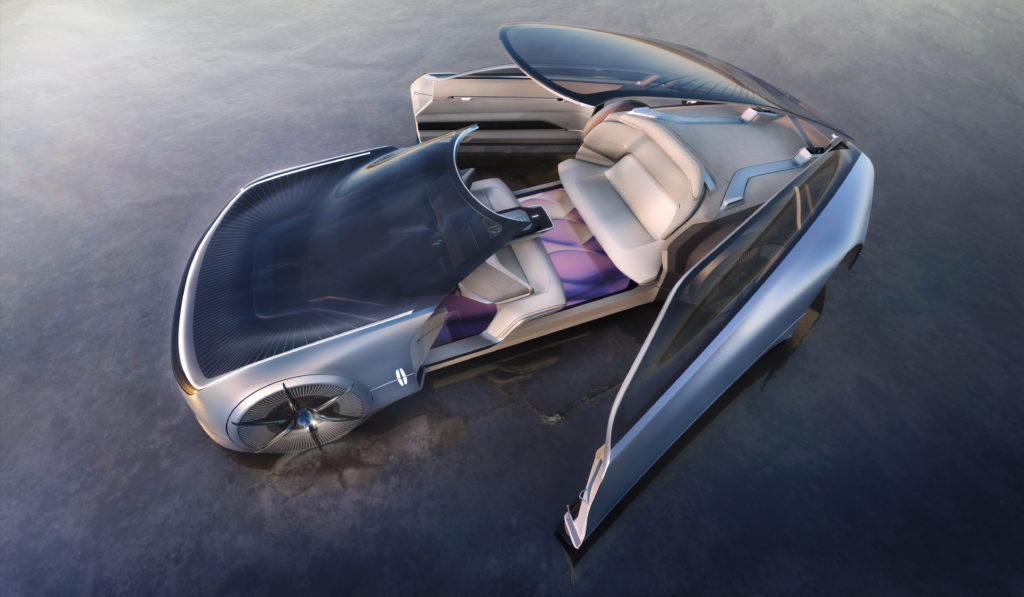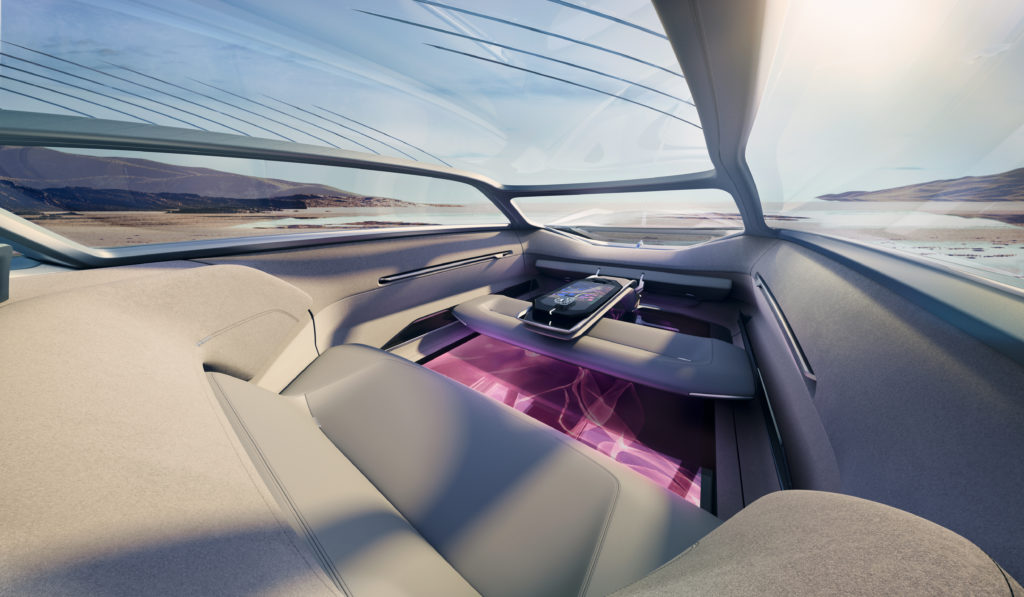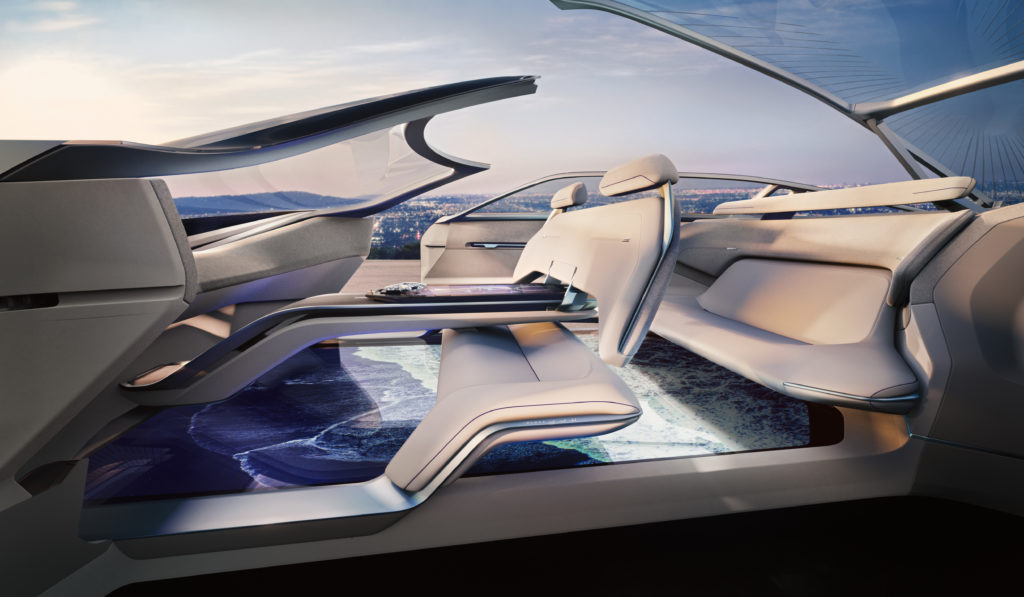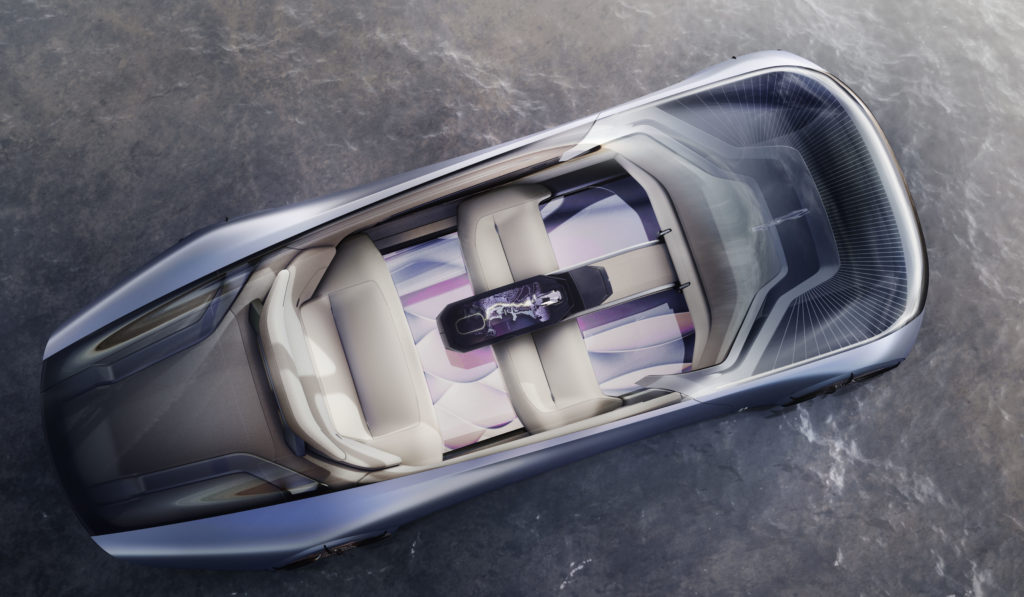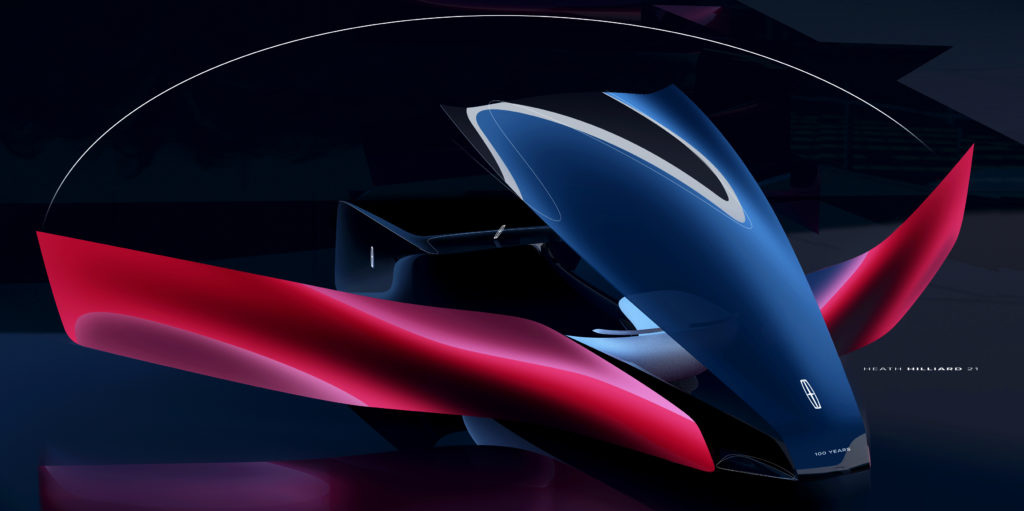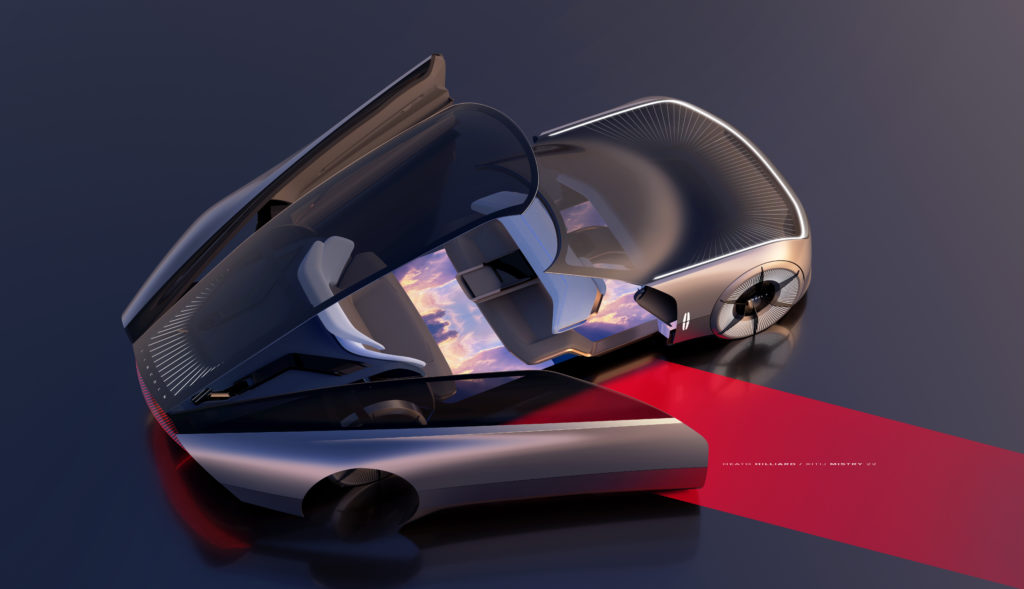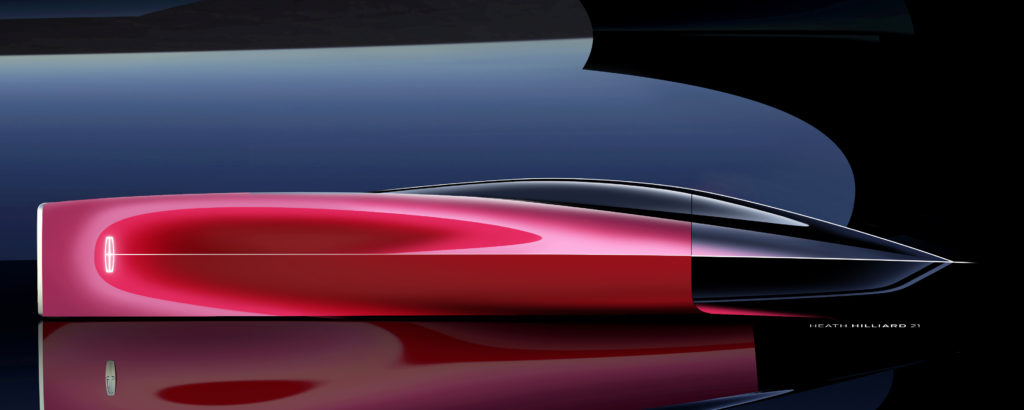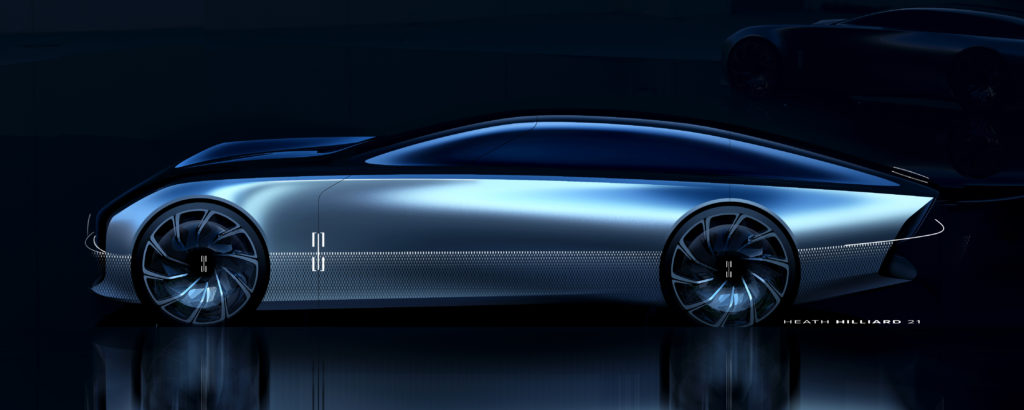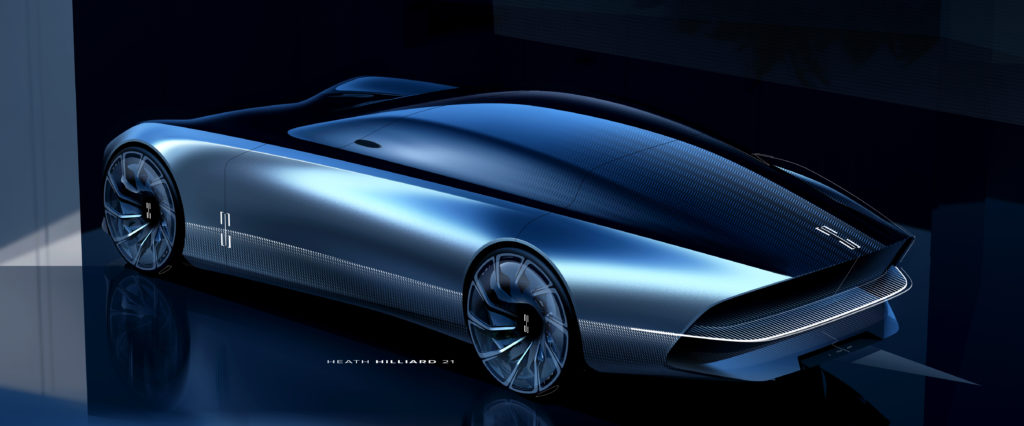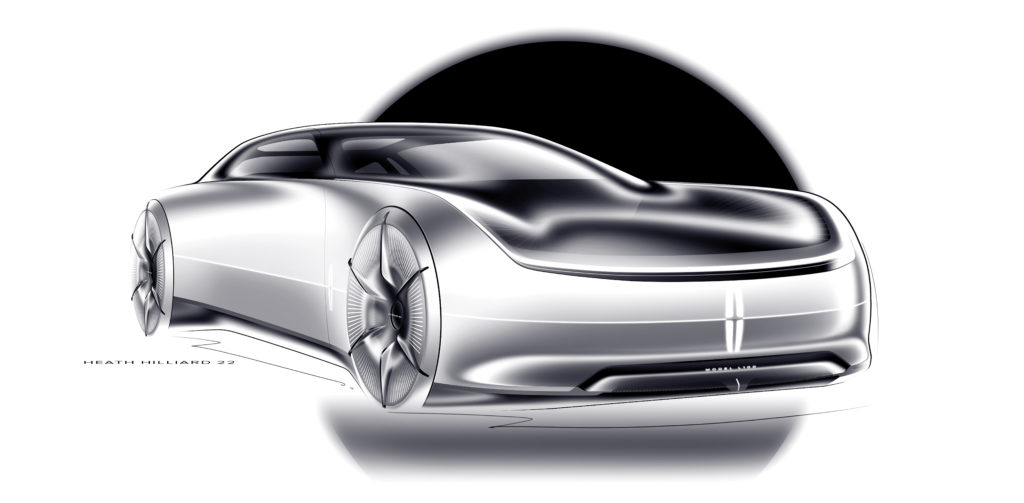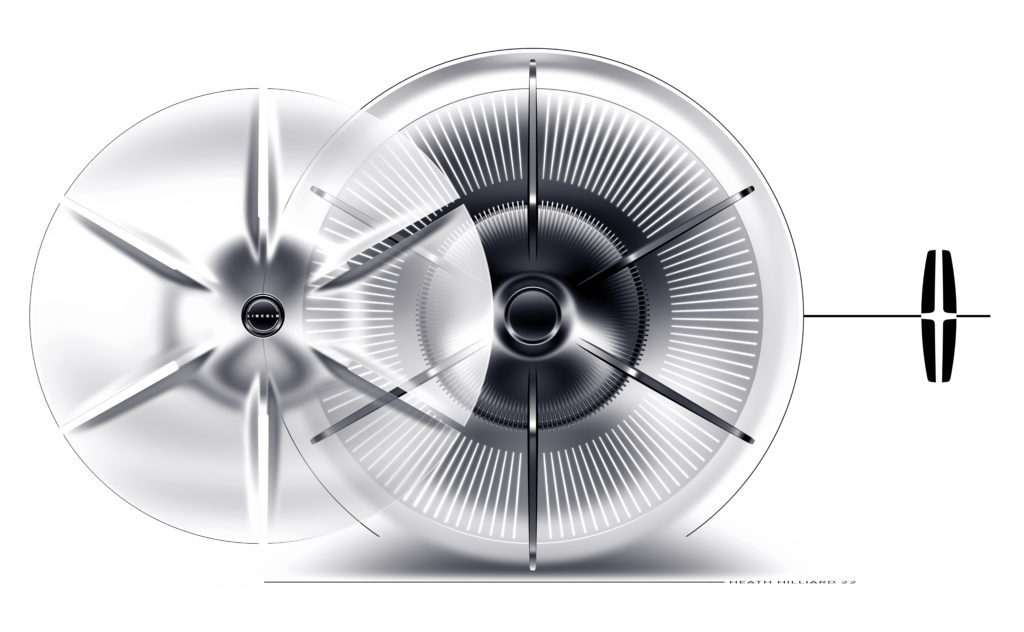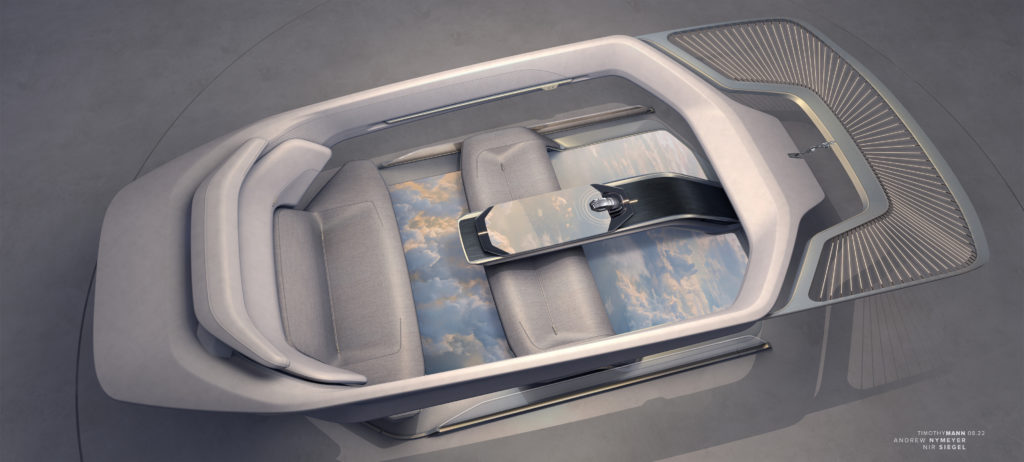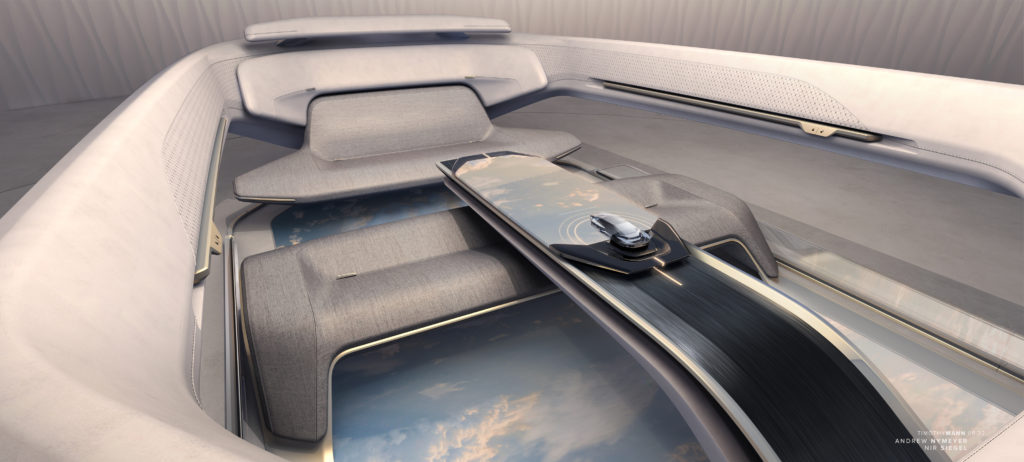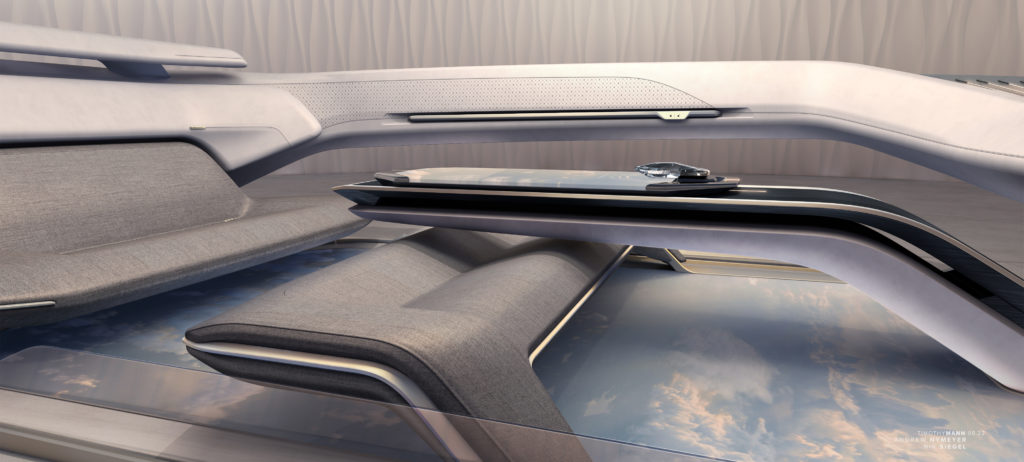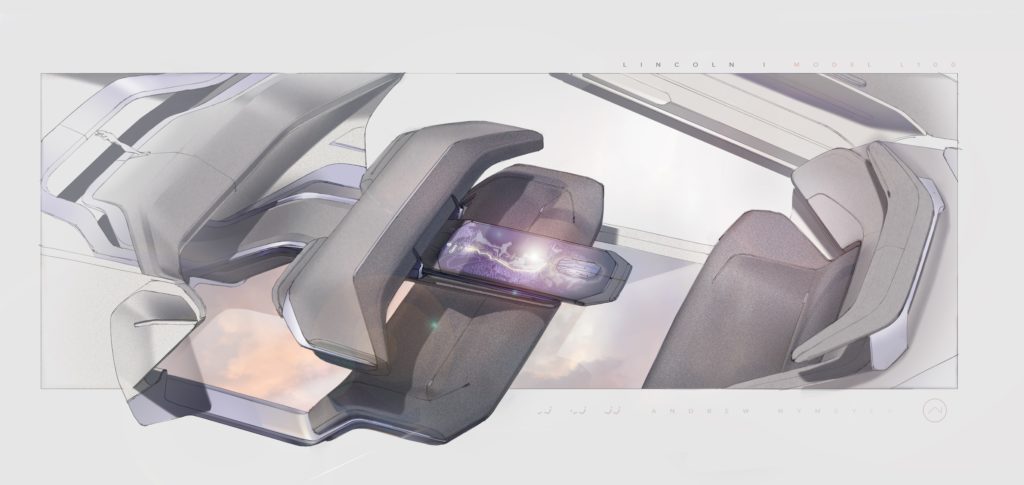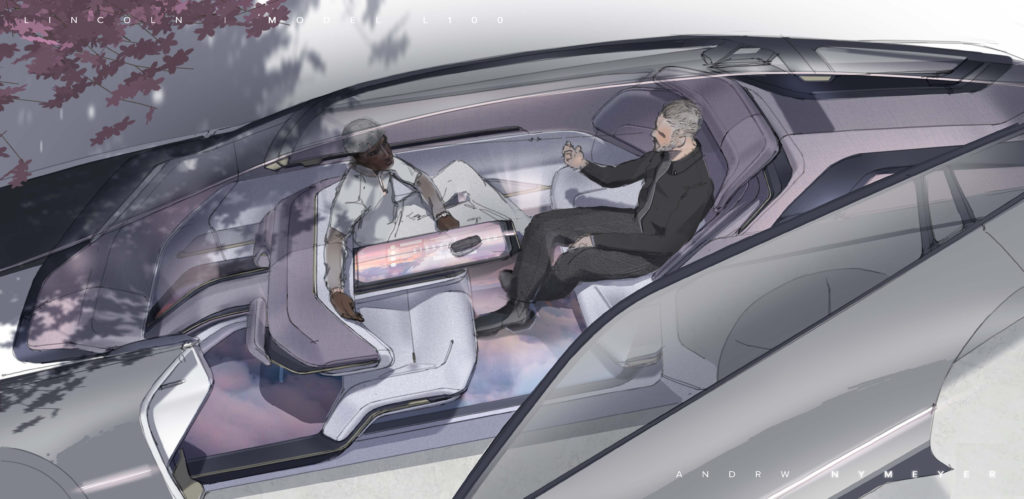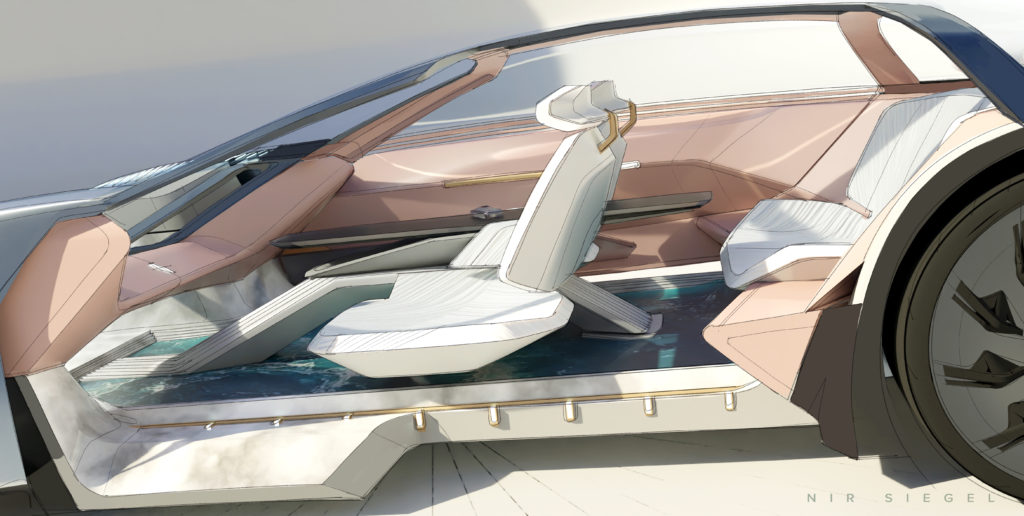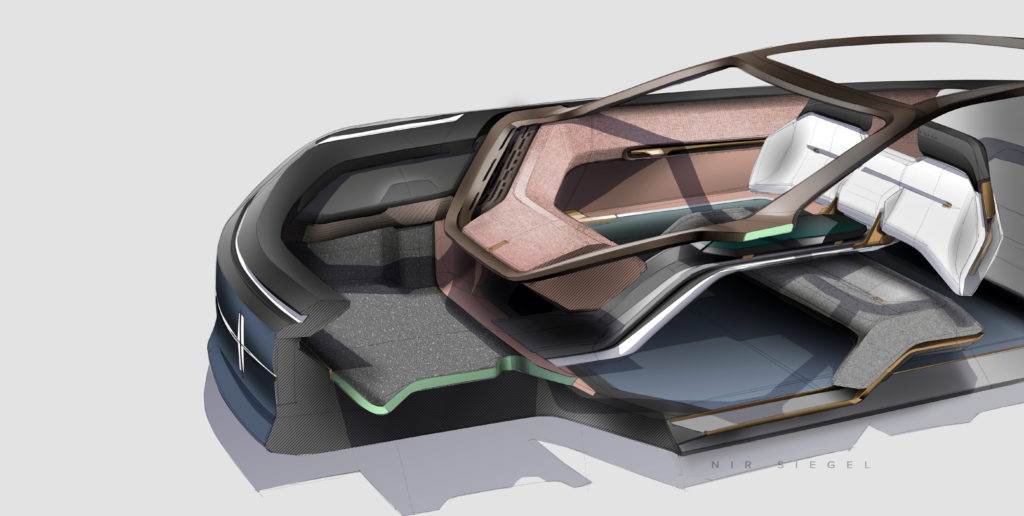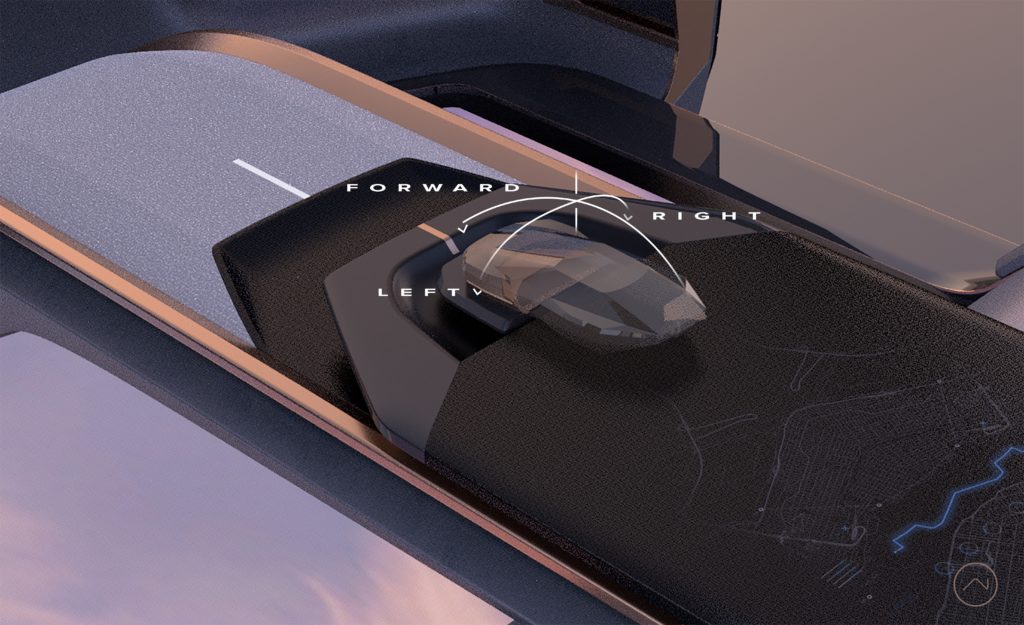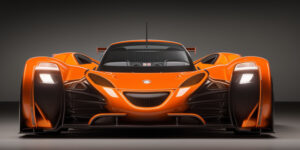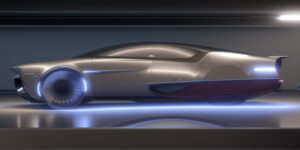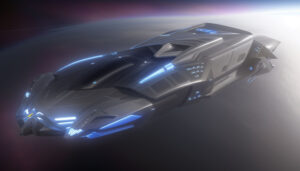Lincoln Model L100 Concept signals Brand’s Future Vision

Computer-generated concept vehicle shown. Not available for purchase
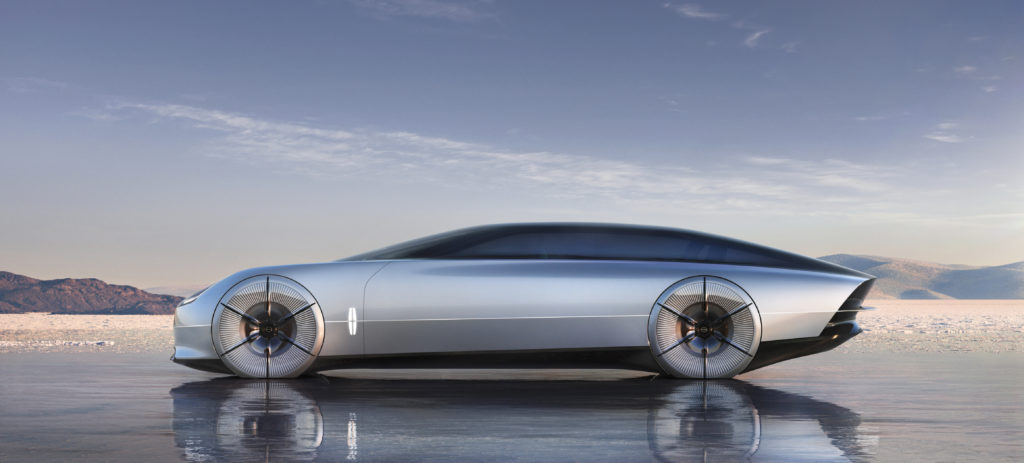
With a nod to the past while looking toward the future, Lincoln reveals its vision for mobility with the debut of the Lincoln Model L100 Concept.
Debuting at Pebble Beach Concours d’Elegance, where Lincoln is the featured marque as part of the brand’s 100th anniversary, the Model L100 Concept pushes the boundaries of Lincoln’s Quiet Flight design to create connected experiences that reimagine the ultimate vehicle sanctuary of tomorrow.
“Lincoln has been one of the most enduring and stylish automotive brands in the world and in many ways, it is perfectly positioned for a second century defined by great design, zero-emissions and technology-led experiences,” said Bill Ford, executive chair, Ford Motor Company. “Lincoln has always been special to me and my family, especially my father and my grandfather. If there is one secret to Lincoln’s longevity, it is the brand’s ability to balance its core values with a desire to innovate and create the future.”
With alluring beauty that captivates upon approach, the L100 concept embraces the tension between exuberant elegance and subtle restraint. The sleek design is aerodynamic, and the transformable space allows the Model L100 to create human connection in a sanctuary that is truly Lincoln.
“We are at a special moment in our history. Over the last 100 years, Lincoln has pioneered multiple innovations and pushed the boundaries of design that have come to define our brand as we know and love it today,” says Joy Falotico, president, Lincoln. “With the Model L100 Concept, we reimagine what the Lincoln sanctuary might look like for our clients of tomorrow moving us forward to define the next chapter of the Lincoln story.”

Advancing the technology of the future
Created as an autonomous vehicle with an intelligent driving experience, connectivity and software-driven innovations, the Model L100 Concept advances Lincoln’s vision and paves the way for the brand to rethink mobility in the future.
The Model L100 Concept uses next generation battery cell and pack technologies, which will deliver game changing energy density and enable efficient, structural integration by treating the entire vehicle as a system. The advanced approach will not only help deliver elegant design, but also maximize the interior cabin space, giving designers new flexibility to create the signature Lincoln experience of the future.
“Concept vehicles allow us to reimagine and illustrate how new experiences can come to life with the help of advanced technologies and allow our designers more creative freedom than ever before,” said Anthony Lo, chief design officer, Ford Motor Company. “With the Model L100, we were able to push the boundaries in ways that evolve our Quiet Flight brand DNA and change the way we think about Lincoln designs of tomorrow.”
An interactive, center console chessboard features a jewel-inspired chess piece controller that captures light and depth by redefining the vehicle controls inside the cabin. The controller replaces the traditional steering wheel in this autonomous concept vehicle, making the vehicle experience intuitive and effortless.
Driver-centric and social seating configurations allow for passenger engagement that can be tailored for the occasion. Shaping the space in ways that allow connection, the front row seats can be flipped forward to create a social setting, in which front passengers can sit across from rear passengers. The transformable environment creates a more accommodating setting, giving the feeling of a true third space.
Transcending through space and time, inside and out
Tail-down, relaxed and sleek, the aero-shaped design is low to the ground, seamless and flush in its details with a K-tail execution efficient in guiding the air over the vehicle.
Arriving with elegance, the glass roof and reverse-hinged doors lift to give a true sense of ceremony and welcome, with the signature Lincoln Embrace. Smart wheel covers help to advance the Embrace even further, utilizing lighting and sensors to communicate motion, battery life and human presence.
The advanced, intuitive lighting creates an orchestrated symphony of lights both inside and out – augmented to the senses in ways that create a personalized experience for passengers. Welcoming in a more human way, the Model L100 senses the client upon approach and enables the light symphony to follow the client around the vehicle by leveraging an advanced, artificial intelligence system and GPS sensors to curate the experience.
With accents of amethyst in recycled suede fabric, designers created the Model L100 cabin with animal-free materials and luxury alternatives. On the exterior – designers used metallic paint and frosted acrylic in lieu of chrome with a satin digital ceramic tricoat – highlighting a warm, soft white that transitions into cool, open-air blue.
The entire interior has been designed to create an immersive environment. The digital floor, canopy and ambient lighting all harmonize to create a personalized experience that can enhance your mood. Orchestrated like a fine-tuned symphony along with interior lighting that harmonizes with sound, scent and touch, the digital floor transports passengers to the sanctuary of tomorrow.
A nod to history
The Model L100 Concept celebrates the brand’s design heritage and harkens back to the 1922 Model L which was built after Ford Motor Company’s purchase of Lincoln. The 1922 Model L was highly regarded for its outstanding engineering, serving as the foundation for the design transformation and the beginning of Lincoln luxury.
A crystal greyhound hood ornament, originally selected by Edsel Ford in the 1920s, symbolizes grace, elegance and speed and is visible through the transparent hood, capturing depth and illumination.
“This concept allowed us to design a new experience that is unburdened by past limitations and represents an evolution of our Quiet Flight tenets,” said Kemal Curic, global design director, Lincoln. “The ultimate expression of our Model L100 design is one that moves effortlessly – a vehicle that appears to be sculpted by the wind, as if friction does not exist.”
